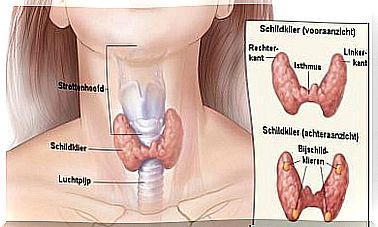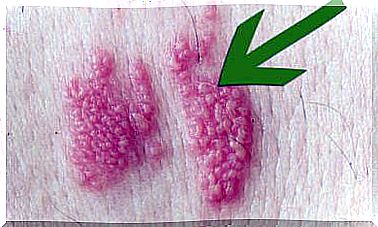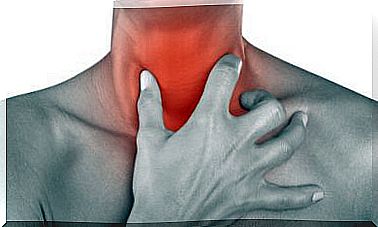Stop A Panic Attack In An Instant

Have you ever had a panic attack? If so, then you know how unpleasant this can be. But you can learn how to stop a panic attack.
In this article we give some tips. That way, you’ll know how to end a panic attack if it happens again.
How do panic attacks start?

Panic attacks are accompanied by the following symptoms:
- They are temporary and usually last between five and ten minutes. After a panic attack, you may experience a feeling of physical and emotional exhaustion.
- Remember, your mind and body have been preparing for real danger during that time. It is this reaction that has caused you to waste a lot of energy.
- People who have a panic attack suffer from physical pain. Sometimes they even go to the doctor because they believe it could endanger their lives.
During a panic attack, the person believes that everything around him is unreal. His environment is part of an unknown, strange world.
They also know what happens to them. In addition, they realize when a panic attack is about to occur.
When they experience an episode, they may feel terrified. They also lack a valid reason for this fear.
It is typical for panic attacks to be accompanied by intense physical symptoms. Examples include an increased heart rate, difficulty breathing, hyperventilating, trembling and dizziness.
Panic attacks can strike at any time or place without warning. Still, it is typical for a person to realize a few minutes before that something is going to happen to him.
When do panic attacks occur?
People who suffer from this usually experience their first panic attack between the ages of 12 and 25. It is mainly caused by emotional factors, such as an uneasiness related to their emotional state.
There are two theories about the origin of panic attacks:
- One theory states that they may be caused by an excess of the neurotransmitter norepinephrine. This is a substance that regulates your postsynaptic adrenergic receptors.
- The second theory is somewhat related to the first. Here it is claimed that this type of attack occurs when the activity of the GABA neurotransmitter (gamma-aminobutyric acid) slows down.
When this happens, your anxiety will increase.
What is a panic attack?
According to research, panic attacks are something we inherited from our ancestors. For their bodies had to be ready to fight or flee.
Characteristics of panic attacks are rapid breathing, accelerated reflexes and profuse sweating. All those features were once survival mechanisms.
How can you stop a panic attack?
When you experience an episode like this, the first thing to think about is that you are not facing a situation of real danger.
You must remember the following four things. Because that way you can stop and overcome a panic attack.
- You will not die from a panic attack. You will also not face mortal danger.
- Try to relax and find a quiet place. Wait for your fear to pass. Accept it and don’t fight it.
If you stop thinking about what caused the attack, your fear will disappear on its own.
- Take a deep breath in and out.
- Tense the muscles of your body and then relax them. This helps you focus your mind on other things.
You can stop a panic attack with these tips. Once the attack is over, remember what caused it. Try not to let this happen again.
Also remember that avoiding stress is your best weapon. It’s also a good idea to learn to relax. This means sleeping well, getting enough rest, eating healthy and meditating.
See your doctor regularly to monitor your health and understand the nature of your panic attacks. This will help you learn how to fight with your intelligence and not with your emotions.
It’s also a good idea to avoid products that contain caffeine. Because they can cause anxiety or panic attacks in people who are susceptible to them.









